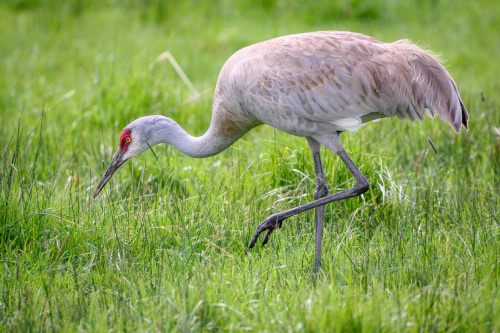SUBSCRIBE TO THE FREE NEWSLETTER
We want to hear from you
Thanks for reading Cascadia Daily, the Pacific Northwest’s tastiest curated collection of links to news, environmental reporting, arts, culture, fiction, and poetry from across the region. We’re part of Cascadia Magazine, an online publication dedicated to exploring ideas, culture, and place in the upper left-hand corner of North America. We want to make sure we’re covering the topics, writers, and ideas you want to hear about.
Have a suggestion for a story, an artist you think deserves attention? Is there something you’d like to see more of (or less of) in this newsletter? Did we misspell the name of your hometown? We want to hear from you! Send us a note here.
And we’re looking to build our readership, so if you enjoy Cascadia Daily, we’d appreciate if you recommend it to your friends and colleagues. They can sign up at this link.
A Poet Protests the Pipeline
In “House Arrest,” an essay online at Cascadia Magazine, poet Danika Dinsmore chronicles the deep bonds she built during her arrest and sentencing demonstrating against expansion of the Trans Mountain pipeline across British Columbia. It’s an inspiring call to action on climate change.
“I am no hero. My fellow protestors and I agree: our courage is not extraordinary. We were simply so deep in our despair we were overcome with the need to do something. . . . Crossing the injunction line was the easiest thing to do at the time, because not crossing, not acting, not demanding was more frightening.”
Read the full article here.
Seattle approves higher density areas across city
Today, after a four-year debate, the Seattle city council passed the citywide Mandatory Housing Affordability program, raising density and building height limits in 27 neighborhoods across the city, Josh Cohen at Crosscut reports. The Urbanist looks at the long journey for the “Grand Bargain” between developers, the city, and housing advocates — which allows taller, more dense housing in return for payment into a fund dedicated to building affordable units.
Boeing and FAA went forward with 737 MAX despite known flaws
This weekend, the Seattle Times had what can only be described as a blockbuster investigative report on flaws in the Boeing 737 MAX’s emergency flight control systems, flaws that may have led to two crashes over the past several months. “The FAA, citing lack of funding and resources, has over the years delegated increasing authority to Boeing to take on more of the work of certifying the safety of its own airplanes.” The US Dept. of Transportation is investigating the FAA and Boeing’s approval process and has issued at least one subpoena.
Kids with disabilities restrained in OR & WA schools
OPB has a disturbing, detailed report on how thousands of kids with disabilities in Oregon and southwest Washington are being physically restrained as a discipline measure — and parents aren’t being regularly informed of the practice. In other education news, the WA legislature is looking to lift a cap on the amount of tax revenue local school districts can raise. And at The Tyee, reporter Katie Hyslop talks about her award-winning series on foster care and Indigenous issues, and how the path to reforming the system requires actively involving young people.
Cold winter was hard on Cascadia wildlife
Northwest News Network reports on how this winter’s cold weather has been hard on wildlife east of the Cascade crest in Oregon and Washington. Because species such as ground squirrels and sandhill cranes are already stressed by warming summer temperatures caused by climate change, the occasional cold snap is felt much harder, say biologists.
Climate youth strikes across Cascadia
This past Friday, many students across the world, inspired by young activist Gret Thunberg, left their classrooms to call for immediate action on climate change — at The Tyee you can listen to participants and check out some great photos by Jackie Dives (a very talented photographer that Cascadia Magazine was lucky to hire for this series on safe-injection sites). Portland Mercury reports on the walkouts in Portland, the Stranger reports on how kids ran the show at the Seattle protest; students also walked out in Spokane, Boise, Eugene, Bend, OR, and Kamploops, BC.
Confronting trauma with Godzilla and a dress of 10,000 flowers
Crosscut has a great profile of the performance piece Skeleton Flower, a combination of of music, dance, spoken word, and film by the Seattle group Degenerate Art Ensemble. It’s a potent exploration of childhood domestic abuse through the Godzila myth, intense modern dance, and gorgeous costumes (including a dress of 10,000 flower blossoms). Dancer/creator Crow Nishimura’s performance was stunning (I was lucky to see a performance last Friday).
A debut novel from Vancouver-based poet Ian Williams
The Georgia Straight has nice profile of Ian Williams, a poet and writing instructor at the University of British Columbia who has a debut novel, Reproduction, about a random encounter that develops into a relationship between two people from extremely difference economic and cultural backgrounds. The Vancouver Sun has a Q&A with Williams, and you can read his poem “the past sometimes seems conditional,” online at the Poetry Foundation.
That’s today’s grab-bag of news, environmental coverage, and artsy stuff from across the Cascadia bioregion. This week I’m reporting from Vancouver, British Columbia, where in mid-March it’s always sunny and 17 degrees! (That’s 63 F to my American readers.) ? –Andrew Engelson
Photo credits: sandhill crane at Oregon’s Klamath wildlife refuge by Becky Matsubara via Flickr CC BY-SA 2.0

